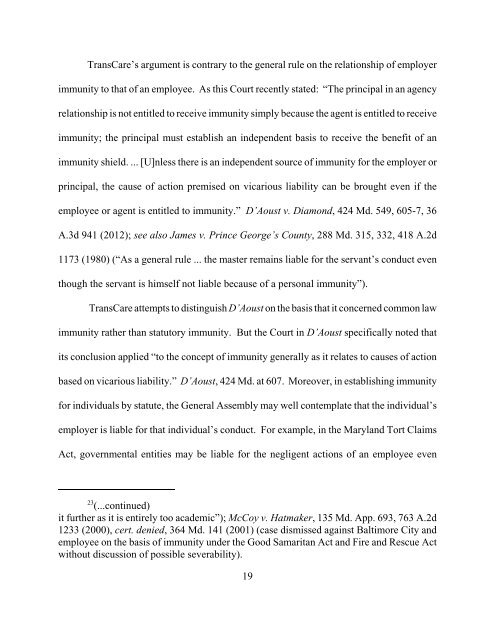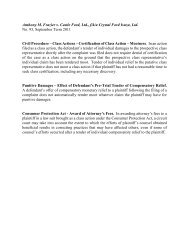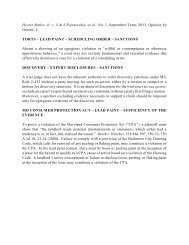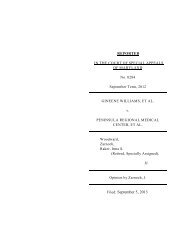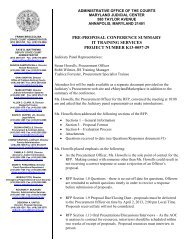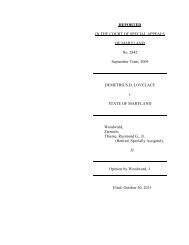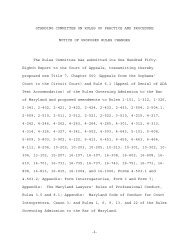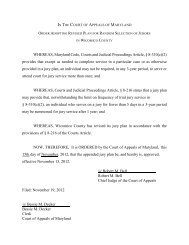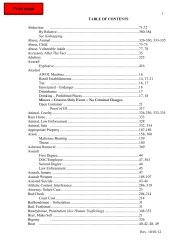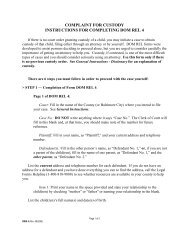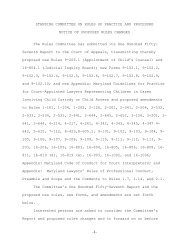24/12 - Maryland Courts
24/12 - Maryland Courts
24/12 - Maryland Courts
Create successful ePaper yourself
Turn your PDF publications into a flip-book with our unique Google optimized e-Paper software.
TransCare’s argument is contrary to the general rule on the relationship of employer<br />
immunity to that of an employee. As this Court recently stated: “The principal in an agency<br />
relationship is not entitled to receive immunity simply because the agent is entitled to receive<br />
immunity; the principal must establish an independent basis to receive the benefit of an<br />
immunity shield. ... [U]nless there is an independent source of immunity for the employer or<br />
principal, the cause of action premised on vicarious liability can be brought even if the<br />
employee or agent is entitled to immunity.” D’Aoust v. Diamond, 4<strong>24</strong> Md. 549, 605-7, 36<br />
A.3d 941 (20<strong>12</strong>); see also James v. Prince George’s County, 288 Md. 315, 332, 418 A.2d<br />
1173 (1980) (“As a general rule ... the master remains liable for the servant’s conduct even<br />
though the servant is himself not liable because of a personal immunity”).<br />
TransCare attempts to distinguish D’Aoust on the basis that it concerned common law<br />
immunity rather than statutory immunity. But the Court in D’Aoust specifically noted that<br />
its conclusion applied “to the concept of immunity generally as it relates to causes of action<br />
based on vicarious liability.” D’Aoust, 4<strong>24</strong> Md. at 607. Moreover, in establishing immunity<br />
for individuals by statute, the General Assembly may well contemplate that the individual’s<br />
employer is liable for that individual’s conduct. For example, in the <strong>Maryland</strong> Tort Claims<br />
Act, governmental entities may be liable for the negligent actions of an employee even<br />
23 (...continued)<br />
it further as it is entirely too academic”); McCoy v. Hatmaker, 135 Md. App. 693, 763 A.2d<br />
<strong>12</strong>33 (2000), cert. denied, 364 Md. 141 (2001) (case dismissed against Baltimore City and<br />
employee on the basis of immunity under the Good Samaritan Act and Fire and Rescue Act<br />
without discussion of possible severability).<br />
19


